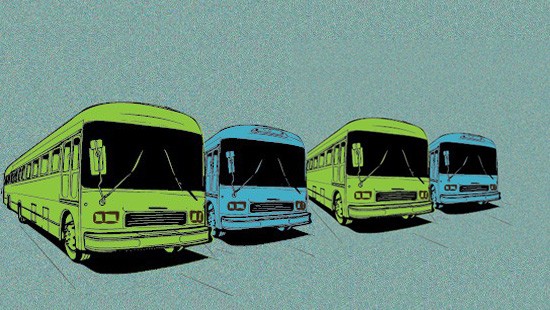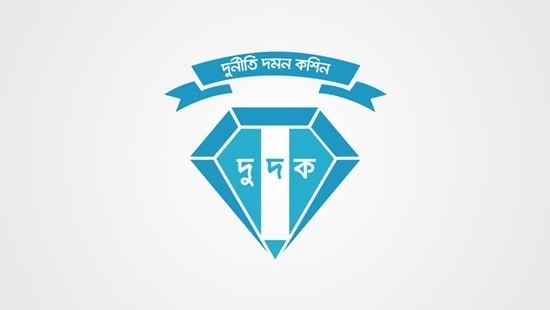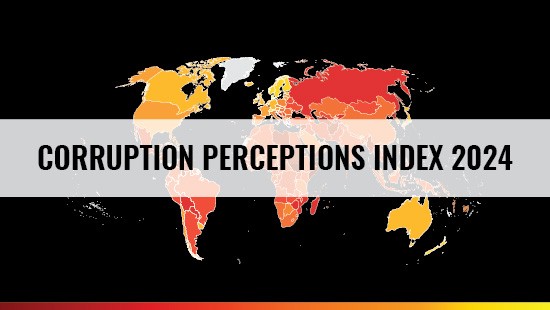Corruption Perceptions Index 2023
Press Release
Dhaka, 30 January 2024: Bangladesh's ranking on the Corruption Perceptions Index (CPI) 2023, unveiled by Transparency International (TI), witnessed a decline, as the country dropped two positions from both the bottom and the top compared to the previous year. With a one-point decrease in the score from 25 in 2022 to 24 in the 0-100-point scale, Bangladesh is now positioned at 10th from the bottom and 149th from the top, compared to 12th and 147th, respectively, in the previous year.
Transparency International Bangladesh (TIB), citing the decline in the country's score and position, has expressed utter disappointment and said this highlights ineffectiveness of the government’s various anti-corruption initiatives and failure to uphold the 'zero tolerance against corruption' policy. TIB has attributed the deterioration to inadequate law implementation and structural weaknesses. To address this, the organisation has proposed five recommendations for curbing corruption and ensuring societal checks and balances.
TIB in a press conference at its Dhaka Office today, has unveiled the CPI 2023, which has also been unveiled worldwide simultaneously.
In the press conference, TIB Executive Director (ED) Dr. Iftekharuzzaman highlighted the alarming trends revealed in the CPI 2023. He stated, "Bangladesh's score, which has fluctuated between 25 and 28 from 2012 to 2022, has now dropped to 24, the lowest in 12 years. This marks a significant regression, placing Bangladesh at the 10th position from the bottom and the 149th from the top. Besides, by analysing the TI CPI trends from 2012 to 2023, it can be seen that Bangladesh's score this time is two points lower than the overall 12-year average score of 26 and is the lowest during this period."
TIB’s Director - Outreach and Communication Sheikh Manjur-E-Alam moderated the press conference, where TIB Chairperson Advocate Sultana Kamal and Advisor - Executive Management Professor Dr. Sumaiya Khair were present, among others.
According to the global picture of the CPI, Denmark is at the top of the list of the least corrupt countries with a maximum score of 90, while Finland is second with a score of 87, and New Zealand is third with a score of 85. At the bottom of the CPI is Somalia with a score of 11. South Sudan, Syria, and Venezuela are jointly second from the bottom on the list with a score of 13, and Yemen is third with an overall score of 16.
Out of the 180 countries listed in the CPI, 105 countries scored below the average mark of 43, and 80 per cent of the world's population reside in those parts of the world. Furthermore, scores below 50 are recorded in 122 countries, representing more than two-thirds of the countries included in the index. This indicates that the level of corruption in these countries is alarming.
According to the CPI, among the eight countries in South Asia, Bhutan retained last year's score of 68, while the remaining five countries in the region scored lower this time than in 2022, and the scores of two countries increased slightly. Among the countries, Afghanistan's score declined by 4 points, Sri Lanka's by 2 points, and the scores of Bangladesh, the Maldives, and India's by 1 point each. Pakistan's score increased by 2 points, and Nepal by 1 point. However, in South Asia, except for Bhutan, seven other countries scored an average index score of less than 43 points. In other words, the extent and depth of corruption in South Asia as a whole are very worrying.
The TIB ED, mentioning the CPI's theme of ‘Corruption and Injustice’, said, “According to the research of the Economic Intelligence Unit - mentioned in the CPI, the average scores of 24 states with full democracy, 48 with flawed democracy, 36 with hybrid democracy, and 59 with authoritarian regimes are 73, 48, 36, and 29 respectively. On the other hand, the score of Bangladesh is only 24. Even as per the Freedom House research, where the average score of the 93 states with electoral democracy is 53 and the average score of the non-electoral democratic states is 31, Bangladesh's score of 24 proves that the crisis of democracy and impunity in Bangladesh has become more pronounced.”
Explaining the downtrend, Dr. Zaman said, “The last few years were the high time considering the much-talked-about ‘zero tolerance against corruption’ policy, declared from the top level of the government. But no specific and action-based activities were visible for implementation of the policy. Rather, the intensity of corruption heightened and spread further during the tenure. A huge volume of information surfaced regarding corruption in the public procurement and distribution system as well as other government activities. But no exemplary and effective steps were taken.”
“Besides, no initiative was seen to handle the perilous situation in the country’s banking system, reeling under the burden of loan default, scams and money laundering. On the contrary, a conducive environment or even sanctuary was created for the people involved. The power achieved through political, administrative and financial means was used as a licence to make and flourish illicit wealth - and the phenomenon was transformed into normalcy. Meantime, political and bureaucratic influence intensified in the Anti-Corruption Commission (ACC) and other such institutions,” he noted.
The CPI index measures the perceived level of corruption on a scale of 0-100. A score of '0' is considered to be the most affected by corruption, and a score of '100' is considered to be the least affected by corruption or most well-governed. No country included in the index has received a 100 per cent score so far.
The press conference was told that CPI defines corruption as the abuse of public office for private gain, and TIB does not play a role in determining the CPI. Even the data or analysis from any of TIB's research is not added to the CPI. Like the TI chapters in other countries around the world, TIB only publishes the CPI at the country level. A total of 13 surveys are used as the data sources for the CPI for different countries of the world. Minimum three international surveys are needed for a country to be included in the index.
In the case of Bangladesh, eight surveys have been used like the last year. The surveys are – World Economic Forum’s Executive Opinion Survey, Economist Intelligence Unit’s Country Risk Ratings, World Justice Project’s Rule of Law Index, Political Risk Service’s International Country Risk Guide, Bertelsmann Foundation’s Transformation Index, Global Insight Country Risk Ratings, World Bank’s Country Policy and Institutional Assessment, and Varieties of Democracy Project Dataset’s report. The data collection period for CPI is November 2020 to September 2023.
Find more details: https://www.ti-bangladesh.org/cpi
For media inquiries, please contact:
Sheikh Manjur-E-Alam
Director, Outreach and Communication
Phone: (+880-2) 41021267-70
Email: manjur@ti-bangladesh.org
From 1 February 2024
Mohammad Tauhidul Islam
Director, Outreach and Communication
Phone: 01713 107868
Email: Tauhidul@ti-bangladesh.org







